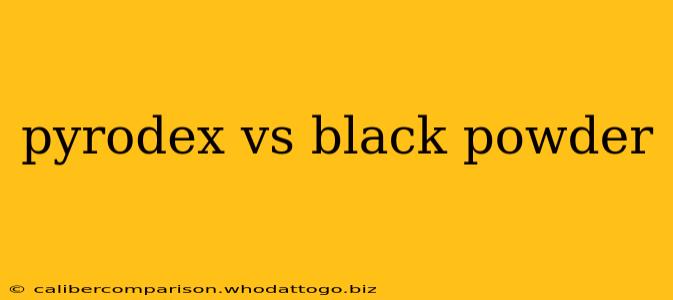For muzzleloading enthusiasts, the choice between Pyrodex and black powder is a crucial one, impacting accuracy, cleaning, and overall shooting experience. Both are propellants, but their chemical compositions and performance characteristics differ significantly. This in-depth comparison will help you understand the nuances of each, enabling you to make an informed decision based on your specific needs and preferences.
Understanding Black Powder: The Traditional Propellant
Black powder, the original propellant for firearms, is a mechanical mixture of potassium nitrate (75%), charcoal (15%), and sulfur (10%). Its combustion process is relatively simple, producing a large volume of gas relatively slowly, with considerable fouling.
Advantages of Black Powder:
- Traditional Feel: Many shooters appreciate the historical connection and traditional feel associated with black powder.
- Wide Availability: Black powder remains readily available at most sporting goods stores and online retailers.
- Relatively Inexpensive: Compared to substitutes, black powder is generally more affordable.
Disadvantages of Black Powder:
- Fouling: Black powder leaves behind significant fouling residue, requiring meticulous cleaning after each shooting session. This residue is corrosive if left in the barrel.
- Hygroscopic Nature: Black powder absorbs moisture from the air, potentially leading to misfires or inconsistent performance. Proper storage is crucial.
- Sensitivity: Black powder is relatively sensitive to sparks and friction, demanding careful handling.
Pyrodex: A Modern Substitute
Pyrodex, a black powder substitute, is a chemically formulated propellant designed to offer some advantages over traditional black powder. While the exact composition is proprietary, it's known to burn cleaner and more consistently than black powder. Several formulations exist, including Pyrodex P, RS, and Select.
Advantages of Pyrodex:
- Cleaner Burning: Pyrodex produces significantly less fouling than black powder, simplifying cleaning and reducing barrel wear. The residue is less corrosive.
- Less Hygroscopic: Pyrodex is less susceptible to moisture absorption than black powder, resulting in more reliable ignition even in humid conditions.
- Consistent Performance: Pyrodex generally provides more consistent velocity and accuracy compared to black powder.
Disadvantages of Pyrodex:
- Higher Cost: Pyrodex is typically more expensive than black powder.
- Potential for Higher Pressure: In some firearms, Pyrodex can generate higher pressures than black powder, potentially causing damage if incorrect loads are used. Always consult your firearm's manual for recommended loads.
- Availability: While widely available, Pyrodex may not be stocked by every retailer that carries black powder.
Pyrodex vs. Black Powder: A Head-to-Head Comparison
| Feature | Black Powder | Pyrodex |
|---|---|---|
| Composition | Potassium nitrate, charcoal, sulfur | Proprietary chemical formulation |
| Fouling | High, corrosive | Low, less corrosive |
| Hygroscopic | High | Low |
| Consistency | Less consistent | More consistent |
| Cost | Lower | Higher |
| Cleaning | More difficult, requires thorough cleaning | Easier, less frequent cleaning |
| Safety | Sensitive to sparks and friction | Generally safer, but still requires careful handling |
Choosing the Right Propellant
The best propellant for you depends on your priorities. If you prioritize a historically accurate experience and lower cost, black powder might be the better choice. However, be prepared for more rigorous cleaning and potentially inconsistent performance. If you value cleaner shooting, easier cleaning, and more consistent performance, Pyrodex is a strong contender, despite the higher cost.
Important Note: Always consult your firearm's owner's manual for specific load recommendations and safety precautions. Using incorrect loads can lead to serious injury or damage to your firearm. Safe handling practices are paramount regardless of the propellant used. This information is for educational purposes only and does not constitute professional advice.

